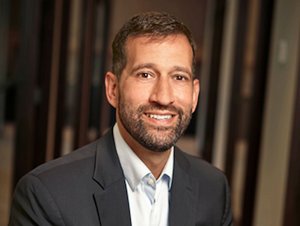During the last fiscal year, the University of Minnesota successfully founded 18 startups. That's a record for the school's Venture Center, the office tasked with turning faculty research into real, viable businesses.
The Venture Center has been growing at a steady pace over the last decade, churning out more and more startups every year. Last year, it created 17. The year before that, 16. In total, the Venture Center has produced more than 100 Minnesota-based startups since the university started the program in 2006.
"We sit in a very interesting startup ecosystem," said Venture Center associate director Russ Straate. "The Twin Cities is big enough to offer a very diverse group of experts, but small enough for us to get people engaged. If we were in New York or Chicago, lots of those resources would be there, but they would be tough to connect to."
Straate said the Twin Cities tech and business community has played a vital role in helping University-founded startups succeed. Of the 115 startups it's produced in the last decade, more than 75 percent are still active today, according to the Venture Center. In total, these startups have received just under $400 million in venture capital funding.
The University of Minnesota is one of the largest public research institutions in the nation, spending hundreds of millions on research each year. But when that research is wrapped up, what happens next? According to Straate, each is evaluated for its startup potential, and around 10 percent make the cut.
To filter that pool further, Straate said the Ventures Center has four criteria each potential company must meet: How disruptive is the invention at solving a problem in the marketplace? How big is the problem it solves? Does the invention have a competitive advantage? Is an inventor involved?
According to Straate, that last question is particularly important. It's difficult to turn an invention into a business if the person who came up with the idea isn't interested. Along with university faculty, the Venture Center works with a group of more than 100 local entrepreneurs, who help the fledgling businesses find the right leadership and provide connections to capital.
"[The startups] are all kind of like our children," he said. "We're excited about the potential of each and every one, and I belive they all have significant opportunities to succeed."
Here are the 18 startups that the University of Minnesota produced in the last year:
Aerem: Advanced gas particulate filter system for vehicles to address stringent emissions requirements, such as those in China.
Antibiotic Alternatives: Novel antimicrobial agents that thwart infection by augmenting the production of naturally occurring antimicrobial proteins in mucosal epithelial cells.
Carponentry: Unique residential housing product for the single-family detached home market.
Cell Therapy Solutions: Device that reduces cell loss, processing time and labor costs for multiple types of preserved cells.
Cleanair-CARE LLP: Renewable, energy-efficient method for cleaning large amounts of outside air in urban settings.
Ensor Inc.: Battery chemistry and manufacturing process for a silicon dominant-based anode that will triple the anode energy density and provide minimal loss in capacity retention.
enVerde LLC: Converts various solid biomass components to syngas, used to make synthetic natural gas, ammonia, methanol, and other chemicals.
Farm Vision Technologies Inc.: Imaging software that works with existing drones and their imaging technology to provide farmers a view on crops and to aid in preparation for harvesting.
General Probiotic: Producer of probiotics for farm animals that fight gastrointestinal infections, such as E. coli and salmonella.
MerTron: A technology that captures mercury when a human body is cremated, preventing mercury from escaping into the atmosphere.
OX2 Therapeutics: A highly effective treatment against solid-tumor cancers.
R5VR: Software interfaces and service that take architectural drawings and create a virtual reality experience.
Resynergi: Converts waste plastic to oil using microwave pyrolysis technology.
Sironix Renewables: Combines plant-based ingredients into functional chemicals for use in creating safer products, including laundry detergent and agricultural pesticides.
Soundly: Simple, noninvasive way to reduce snoring using a smartphone app.
Sustainalytics: Assists cities and communities in assessing environmental and social impact of infrastructure projects.
Turing Tumble, LLC: Educational gaming company teaching children the first principles of how to code software using a mechanical computer.
VirtusAero: Support for corporate, government, and academic users of US3D, software that models heat flows at supersonic flight speeds for research, military, and commercial applications.








